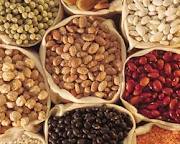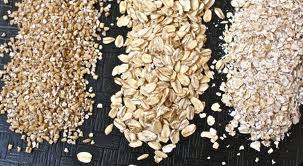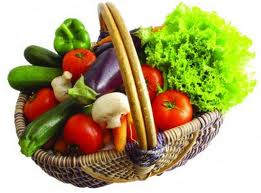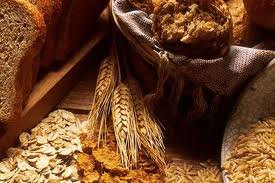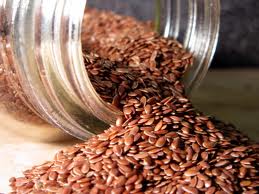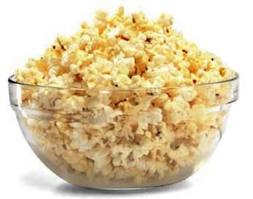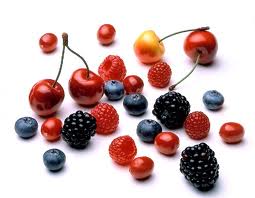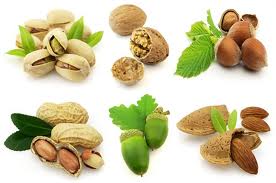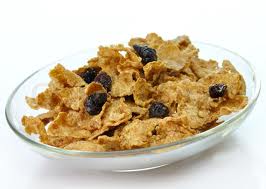Dietary fiber, or in other words bulk or roughage, basically consists of parts of plant foods that cannot be digested or absorbed by our body. Various food components such as proteins, fats or carbohydrates are broken down and absorbed by the body, but fiber is not. Since our body cannot digest or break down fiber, it passes rather relatively intact through the stomach, the small intestine, colon and then out of the body. Fiber has a major contribution in preventing constipation, irregular stools and also helps in lowering blood sugar and cholesterol levels.
Fiber basically has two categories, one which does not dissolve in water is called insoluble fiber and one which dissolves in water is called soluble fiber. Insoluble fiber promotes movement of food material through the digestive system and increases stool bulk. Whereas soluble fiber is dissolved in water as a gel-like material and helps maintain blood sugar and cholesterol levels. For a healthy body, we require about 24 to 38 grams of fiber every day. The amount of fiber and its type differs in plant foods. Thus, to receive maximum health benefits of fiber, eating a broad variety of foods rich in fiber is important.
Beans
Beans come in various shapes, sizes and colors. But they have one thing in common, they have a very high fiber content. Almost all beans are high in fiber. Beans such as black beans, broad beans, kidney beans, soya beans, etc. are extremely rich in fiber. Out of all the beans, soya beans have the highest fiber content. Only 100 grams of roasted soya beans contain 17.7 grams of fiber. A high fiber diet has many advantages that include, normalizing bowel movement and decreased constipation. About 2-3 servings of beans a week are recommended. You can have beans in form of bean salad, in chili, soups or bean burritos.
Beans are also very high in protein. Excess protein in the body means extra work for the liver and kidneys and may result in kidney related health condition. Thus, people already suffering from kidney or liver condition should have beans and other protein rich foods in moderation.
Oatmeal
Oatmeal or dry oats have high fiber content. A cup of dry oats consist of about 12 grams of fiber. The fiber content in oats is an equal mixture of half insoluble and soluble fibers. The soluble fiber in oats has a compound called beta-glucans which helps lower blood cholesterol. It also helps in controlling insulin and blood glucose levels associated with diabetes. Regular intake of whole oats which are rich in soluble fiber are also said to reduce hypertension and high blood pressure. As oats contain soluble fiber, they form a gel that causes viscosity of the stomach to increase, delaying the feeling of hunger and makes you feel fuller for longer, which aids healthy weight loss.
Vegetables
Vegetables are nature’s best foods. They provide us various vitamins, minerals and antioxidants. Vegetables are also high in fiber. Though all vegetables have some amount of fiber, certain vegetables such as French beans, potatoes, green leafy vegetables, peas, artichokes, etc. have some of the highest fiber content in plant foods. A medium artichoke consists of about 10.3 grams fiber and a cup of cooked French beans can give up to 16.6 grams of dietary fiber. Vegetables contain insoluble fiber which is great for people suffering from irregular bowel and constipation. They also improve digestion and increase bulk. Vegetables should be part of a daily balance diet and can be eaten in form of soups, entrees, salads, etc.
Whole grains
Whole grains generally mean the entire grain, which includes the germ, bran and endosperm. Whole grains are good sources of dietary fiber as opposed to refined or processed grains. Dietary fiber from such grains helps maintain blood cholesterol levels and also lowers the risk of heart diseases. A cup of cooked brown rice consists up to 7.98 grams of fiber and 100 grams of rye can give up to 14.6 grams of fiber. 5-6 servings of whole grains in a week can be eaten in the form of breads, pastas, cereals, flaxes, etc.
Flax seeds
Flax seeds are high is dietary fiber. Just a table spoon of raw flax seeds contain up to 2.8 grams of dietary fiber. Since flax seeds are very high in fiber, it is advisable to eat them in small amounts and then slowly increase the quantity. Too mush flax seed fiber can result in cramping and can increasingly affect people suffering from irritable bowel syndrome. Also, people suffering for bowel obstruction, narrowed esophagus or inflamed bowel should have flax seeds in small quantities.
Popcorn
Popcorn is one of the healthiest snacks around. Plain unsalted puffed corn almost has no cholesterol and fat, but is extremely rich in soluble dietary fiber. The soluble fiber from popcorn helps reduce the absorption rate of glucose in our body and also improves the digestive system. A cup of cheese-flavored or oil-popped popcorn consists up to 1.1 g of dietary fiber. Popcorn is an anytime snack and can be eaten by all ages.
Berries
Berries are a rich source of various vitamins, minerals and antioxidants. They also provide with essential dietary fiber. Various berries such as blackberries, blue berries, cherries, cranberries are a good source of dietary fiber. Almost all berries are rich sources of fiber. Just a cup of raspberries can give up to eight grams of fiber. You can add them to your high-fiber cereal or eat them as desserts.
Nuts
Nuts too are a great source for dietary fiber. They are also high in protein, vitamins and minerals. A few nuts every day can definitely contribute towards your daily recommended fiber intake and also provide with other essential nutrients. Peanuts, almonds, walnuts, etc. are recommended nuts for their fiber content. However, allergies should be considered before consuming nuts in any form.
Bran cereal
Bran cereal is one of the best options for a high-fiber breakfast cereal. A serving of high fiber bran cereal can contain up to 5 grams of dietary fiber. They have various advantages including normalizing bowel movement and also reduce constipation.
Too much fiber can also result in gas, general abdominal discomfort, diarrhea, constipation, possible blockages or urgent movements. Thus, fiber should be included in the diet as per the FDA recommendation.




